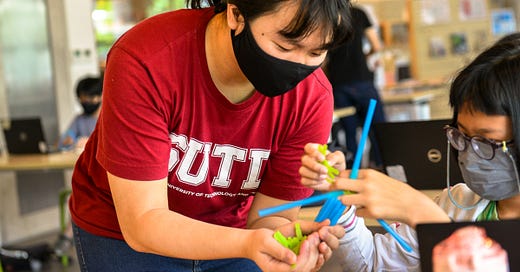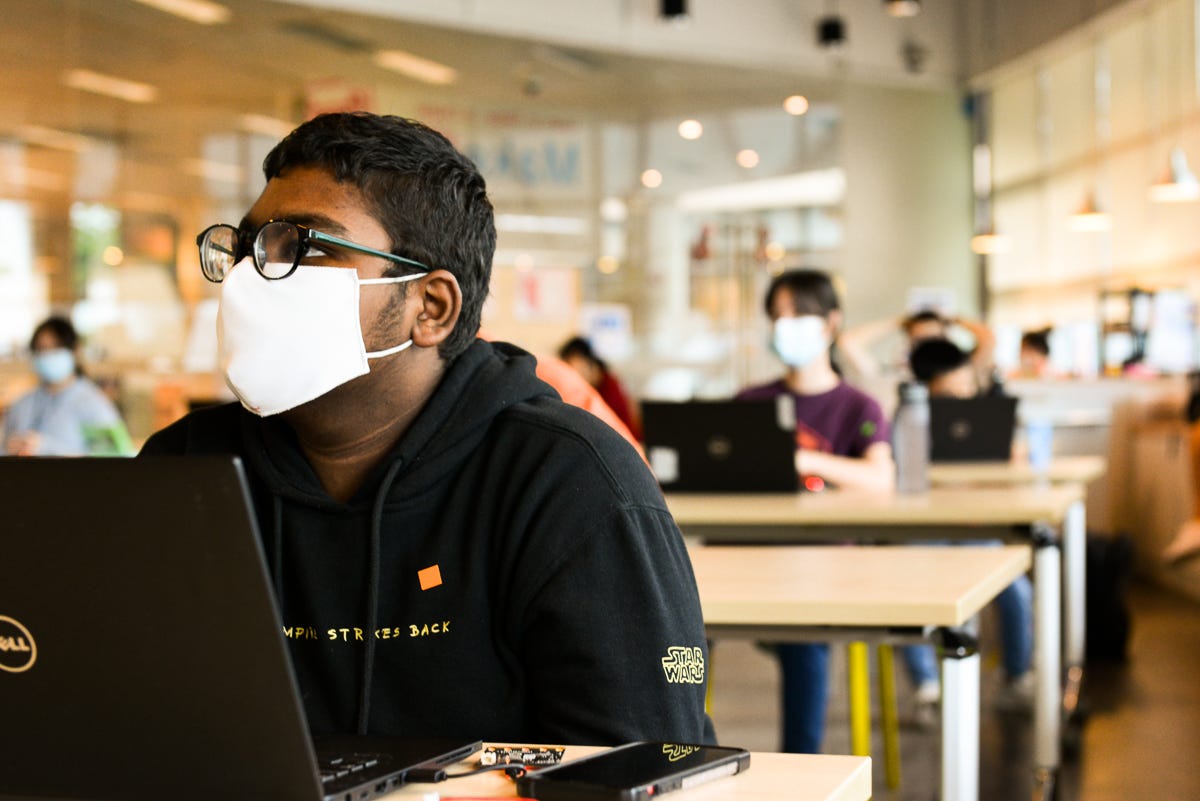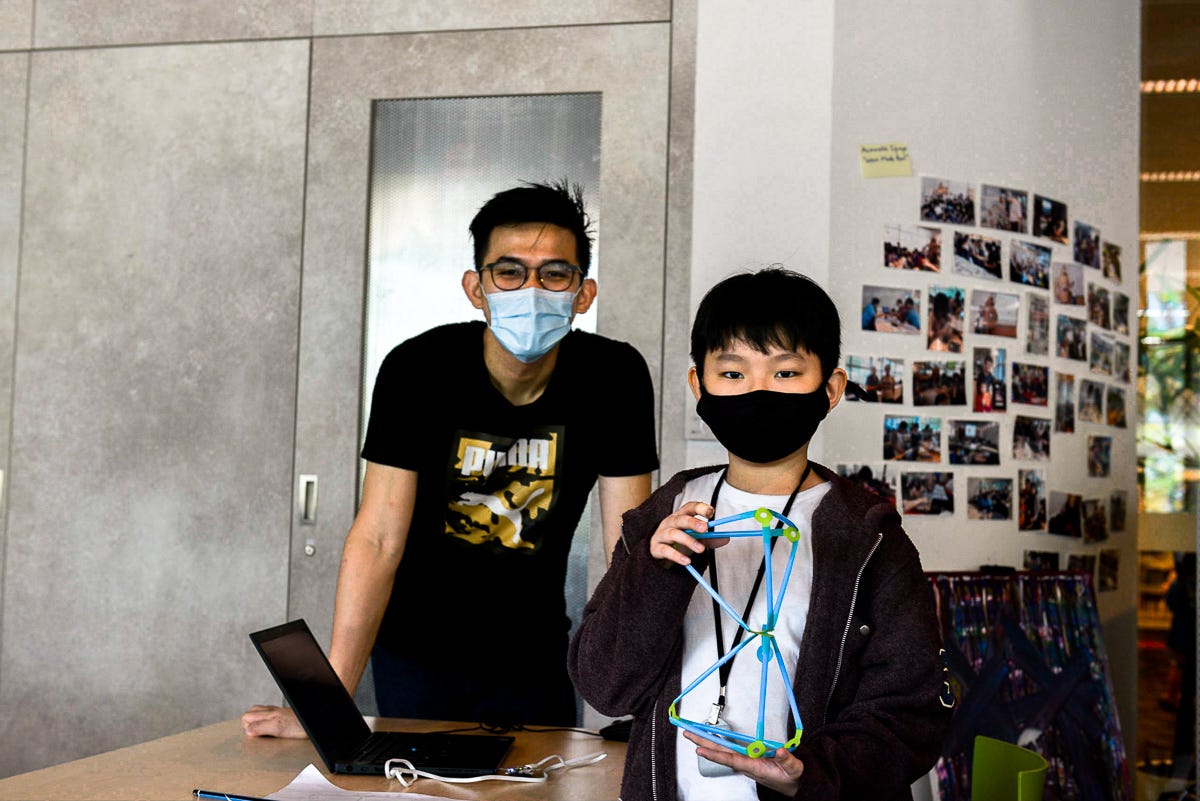Vol. 002 | Impact Chronicles 🤖
A quarterly open letter to our community (i.e. you!) that's enabling us to provide kids the opportunity to use tech to create a better future.
“There is no greater disability in society than the inability to see a person as more.”
– Robert M. Hensel
If you’ve ever wondered why we use code and education as our core instrument for social change, it’s this - an unshakeable belief in kids’ inherent potential and their power to make change and progress happen.
But to ensure every child has a fair shot at shaping the future for the better, we need to shape systems so that they work for kids and not against them, and provide every child the support they need to realise the fullness of their potential.
And while there is so much that is unpredictable - funding, public health, the economy, and more - we’ll place our bets on investing in kids. No one knows what the future holds for any of us, but if we equip kids to be responsible, creative stewards of the future - combining the head and hand skills of creating with technology with the heart for solving problems that make a difference to others - we’ve got a good chance of making it brighter than it is.
Through all the instability, and beyond our impact, this community has been our silver lining. Thanks for being here - we couldn’t do it without you.
🔎 Our impact in numbers
Here’s what we’ve been busy with since we were last in touch.
In December:
Ran the second edition of CITCx - a 3 day interdisciplinary tech camp for 60 Code in the Community graduates. You can read more about how kids felt about the camp, funded by Skyscanner, here! (Want to sponsor the next run of CITCx? Write to us.)
In January:
Awarded fully-funded scholarships to 8 kids from low-income families in our first cohort of Saturday Kids Greenhouse, structured year-long coding programmes. This is possible because of donations - big and small - to our Pay it Forward fund. We’re excited to track their journeys through the year, and will share updates in this space.
For the first time in a year, we launched our first *in-person* Code in the Community classes with over 200 kids from disadvantaged backgrounds and 60 superstar volunteers.
💌 A love letter from the classroom
“This week, E showed me what he created for his first lesson, beaming with pride. He also woke up early on Sunday morning to do his ‘homework’ for the 2nd lesson on Scratch.
We are happy that he is learning things related to environment sustainability with applied coding. Thank you for this amazing opportunity for E to have so much fun, while learning to care for the world he is inheriting.”
It’s that last line for us. 😭 This is why we do what we do, and this is the amazing impact you’re helping to make.
🤸 Corporates, let’s put our heads together
We’re on the lookout for corporate partners keen on upskilling their teams, and donating volunteer hours to making an impact on kids through the Ministry of Education’s UPLIFT programme.
As part of a wider effort to keep disadvantaged kids engaged after school hours, we run Code in the Community as an afterschool programme at schools around the island, but are in urgent need of corporate volunteers to lead classes during (typical) working hours. If you know of any companies that might be interested, our volunteer manager Jose would love to hear from you. 💛
📚 What we’ve been reading
If we are serious about human resource being the only resource that our country possesses, we should examine the different ways in which schools not only enable ambition in some, but also potentially clip the wings of others.
Big questions for reimagining mainstream education in Singapore. 🚶
Prof Teo You Yenn’s research on how children’s education becomes parental care labour, and differently impacts parents across class and gender lines, is important and a must-read for anyone invested in making quality education truly accessible for all our kids. 👏
The ongoing pandemic’s prompted educators around the world to reconsider their approach to assessment. Read more here. 🌎
Just as our ambitions have been driven by an appreciation for climate science, any practical plan for reducing emissions has to be driven by other disciplines: physics, chemistry, biology, engineering, political science, economics, finance, and more.
As Bill Gates notes in this excerpt from his new book, the world’s biggest challenges - like climate change - have to be tackled with an interdisciplinary approach; if we want kids to be problem-solvers, we need to teach them to think and act across silos. 🚀
We circulate and discuss more content like this in our Re:Imagine Learning community - we’d love to see you there. ⚪
We’re glad you’re here.
Hello to our new donors. 👋
Junxiong Ho, Yeo Shulin, Toh Cheng Choong, Jiaen Fan, Yeo Ying Hua Jasmine, Tan Siong Min, Essra Al-Toma, Rachel Roesly, Lua Luo Shan, Ding Ming, Ding Jinhua, Reddy Prasad Puligundla Lokanatha, Karthik Ravikanti, Liu Mingyu, Michael Xander Grey, Akshaya Venkateswara Raja, Tomas Narbutaitis, Abhiram Alamuru, Claudia Tay, Shevonne Chia, Yoga Keshnen s/o Yogaindran, Ng Kuok Shern, Ryan Foo.
Spread love, not germs, by forwarding this letter to a friend.
If you’d like to opt out of receiving these quarterly emails, just let us know. Comments, feedback, or just feeling chatty? Reach out.





